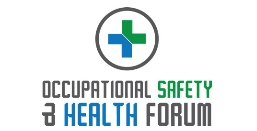Sixty-three per cent of employers measure the impact to their business of supporting the health and wellbeing of their staff.
That’s according to research from GRiD, the industry body for the group risk sector. Of those who do so, almost half (47%) state that employees’ productivity increases when they know their overall health and wellbeing is supported. GRiD is pleased to see employers categorically recognise the business benefits of supporting the wellbeing of their workforce.
The research also found that 98% of employers who measure the impact of supporting the health and wellbeing of staff, report that it has a positive impact on their business. Additionally:
· 42% say that it demonstrates to employees that the business cares about them, and that engenders loyalty and engagement.
· 41% agree that supporting health and wellbeing holistically helps them manage absence as it can mitigate the number and length of absences and mean quicker returns to work.
· 38% believe that they are more likely to succeed financially as a business when their employees are fit and healthy.
· 37% state that supporting staff, including their health and wellbeing, is integral to their company ethos and helps fulfil business objectives.
· 33% have seen a positive return on investment/positive financial impact.
· 32% think that it helps differentiate them from their competitors, which helps recruit and retain employees.
· 31% say that potential clients are interested in how well their company looks after staff, and that having a good policy in place helps them win clients.
Against the backdrop of this research, GRiD encourages those employers who do not currently measure the impact of supporting staff to start doing so, as they may be pleasantly surprised with the results.
Of course, supporting staff is, and always will be, good for business, but GRiD notes that it’s interesting that HR decision makers report such an extensive variety of advantages to their organisations. Supporting the wellbeing of staff does have a positive impact on a business’s bottom line but good business practice is no longer solely about profit-making. As shown in the responses from employers, supporting staff also has a positive impact on ensuring a business operates ethically, contributes positively to society, and builds strong relationships with all its stakeholders.
There are four pillars of wellness in the workplace – financial, physical, mental and social – and support for staff needs to encompass all of these areas to be holistic and meet the requirements of all employees. Employee benefits, including group risk benefits (employer-sponsored life assurance, income protection and critical illness), offer a breadth and depth of tools and solutions to ensure that employers can tailor support to their needs. Many providers also offer help to the business as well, to ensure that HR staff are supported, and are also utilising their benefits programmes to their full potential.
Katharine Moxham, spokesperson for GRiD said: “Supporting the wellbeing of staff is a virtuous circle: staff are more likely to remain in the business and work more productively. This in turn means that the business is financially successful, but also seen to be having a positive impact in other areas, which in turn attracts new clients and new staff. With business purse-strings now tighter than ever, measuring the impact of supporting staff has never been more important to help HR departments retain their benefits budget and look after their people.”
Photo by Alexis Baydoun on Unsplash





